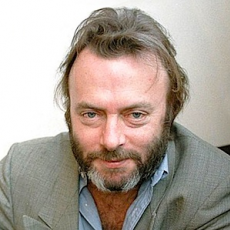
Email: reecejordan98@hotmail.co.uk
Total Article : 168
About Me:18-year-old sixth form student, studying English Literature, History and Government and Politics. My articles will broadly cover topics from the current affairs of politics to reviews of books and albums, as well as adding my own creative pieces, whether it be short fiction or general opinion.

Christopher Hitchens was a journalist, essayist, orator and staunch critic on political and military injustices, as well as perhaps the most prominent opposer of religious doctrine in the 21st century.
Hitchens was born in Portsmouth, Hampshire on 13th April, 1949. His mother was a member of the Women’s Royal Naval Service and his father was an officer aboard the ship HMS Jamaica. The two met in Scotland whilst serving in the Royal Navy during World War II. His mother, however, in 1973 committed suicide in Athens due to a suicide pact with her then lover by overdosing on sleeping pills. Christopher was the elder brother of Peter Hitchens, the conservative journalist for the Mail on Sunday. This, given Christopher’s left-wing political inclinations and abject hatred of religion, surprises many of the public, with some even joking that they had been separated at birth. Such was the divide on their views that the two brothers participated in a long debate in 2008, wherein they provided arguments for and against the moral virtues of religious principle, and the validity and justness of the Iraq invasion in 2003.
In his younger years, Hitchens gravitated towards works such as Fyodor Dostoyevsky’s Crime and Punishment, Arthur Koestler’s Darkness at Noon, Richard Llewynn’s How Green Was My Valley and the works of George Orwell. Whilst only achieving a third-class degree in PPE, albeit at Oxford University, Hitchens went on to begin a relatively successful journalistic career: in 1973 he began working for the New Statesman, where he gained a reputation for having left-wing sympathies whilst reporting in areas of conflict such as Northern Ireland, Libya and Iraq. However, Hitchens’ fame (or notoriety) only saw its blossom when he emigrated to the United States in 1981, where he became a contributing editor for Vanity Fair in 1992, writing ten columns a year.
Hitchens’ opinions on the Iraq war ostracised him from the political left, most notably George Galloway, whom described him as a perverse work of nature “metamorphosing from a beautiful butterfly into a slug”. This is because Hitchens supported the invasion of Iraq due to abhorring Saddam Hussein’s totalitarian regime, decrying that those on the left who didn’t support the destruction of such were hypocritical in their passivity.
The most lethal opposition towards totalitarianism was not seen against any human leaders, however, but that of the ‘ultimate leader’, God, whom Hitchens described as the head of ‘a celestial North Korea’. Unlike his contemporaries, such as Richard Dawkins and Neil DeGrasse Tyson, Hitchens used not the arguments of science to combat religious doctrine, but those of moral questioning and rationale. He spoke of the story of Mout Sinai as not one that ascended human morality, but instead as a fabrication that epitomised human self-deprecation: “Do we really think, brothers and sisters, that our ancestors would have even made it to Mount Sinai if they believed adultery and murder were moral?” Such was one of many astute arguments Hitchens put forward in his book God Is Not Great.
Christopher Hitchens sadly died on 15th December 2011 of esophageal cancer, but his sharp wit, courage as a contrarian and unapologetic nature lives on.
Image from www.themeasurementstandard.com

0 Comment:
Be the first one to comment on this article.